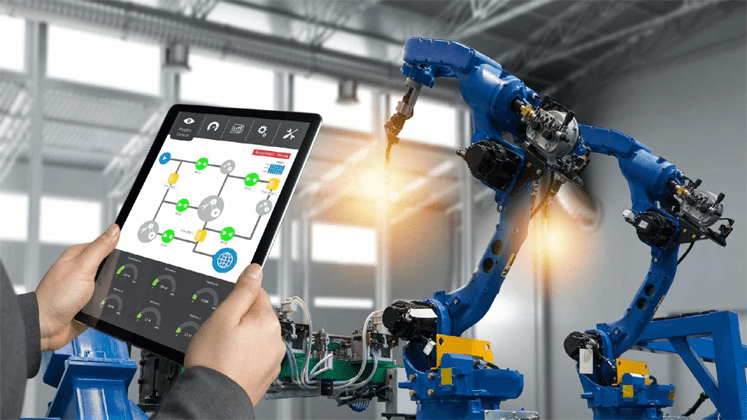How Modular Production Is Revolutionizing Sourcing in Bangladesh
Introduction
Global sourcing strategies are undergoing a dramatic transformation, and Bangladesh is at the heart of it. One major innovation helping to reshape the landscape is modular production. This method of manufacturing has started gaining ground in Bangladesh’s textile and consumer goods industries, offering increased agility, scalability, and cost-effectiveness. Companies around the world, especially in the U.S., are turning to sourcing agents in Bangladesh to navigate this shift effectively.
What Is Modular Production?
Modular production is a manufacturing approach that breaks down production into independent, self-sufficient units. Each module is responsible for a specific part of the production cycle. Unlike traditional linear models, modular systems improve workflow flexibility and reduce downtime.
This setup is ideal for companies looking to diversify product types, manage frequent design changes, and cut time-to-market. Modular units can work on parallel processes, helping factories respond faster to client needs and global demand shifts.
Why It Matters in Bangladesh
The rising global need for custom, fast, and cost-effective manufacturing is forcing developing markets to innovate. Bangladesh, with its deep roots in garment and apparel manufacturing, is rapidly adapting to modular production to meet the evolving expectations of global buyers.
One of the most effective ways to identify modular-ready suppliers is through a bestsourcing agent Bangladesh. These agents ensure clients connect with manufacturers equipped to deliver modular solutions, complete with factory evaluations and compliance checks.
Benefits for Global Buyers
Modular production systems offer multiple advantages. First, they allow for small batch manufacturing, which is perfect for testing new products without committing to massive quantities. Second, production downtime is minimized since independent modules can function even if one unit experiences delays. This ensures on-time delivery for international clients.
Partnering with a bestsourcing agent Asia helps buyers understand which factories offer modular setups, what certifications they hold, and how they perform under varying order volumes. Agents bridge communication gaps and ensure clients avoid unnecessary risks.
Case Application: Apparel Sector
The garment industry in Bangladesh is a leading example of where modular production has taken off. Rather than mass-producing a single design, factories can now operate different modules that handle varied product lines. This flexibility attracts brands that focus on seasonality or run limited edition items.
Sourcing agents identify apparel factories that use trained operators in self-contained teams. These modules manage stitching, finishing, and quality control on their own. The result is a leaner production process and fewer defects in the final product.
Having the right bestsourcing agent Bangladesh ensures proper auditing and alignment with brand expectations from the outset.
Customization and Short Lead Times
Global buyers increasingly demand quick turnarounds and more personalization in production. Modular systems empower manufacturers to shift between styles or products without retooling the entire assembly line.
Agents help clients benefit from this modular agility. They negotiate production timelines, ensure batch sequencing efficiency, and monitor quality checkpoints. Without an on-site expert, managing such dynamic operations from overseas becomes nearly impossible.
Using a reliable bestsourcing agent Asia reduces miscommunication, delays, and budget overruns, especially during urgent or complex production cycles.
Cost-Effectiveness and Operational Control
Another reason why modular production is gaining traction is the clear financial benefit. The ability to isolate defects and test output within smaller units prevents large-scale waste. It also enhances visibility over the supply chain.
For many U.S. companies, this translates to better ROI. When sourcing is coordinated via trusted local partners, visibility improves across each module. A bestsourcing agent Bangladesh provides detailed reporting, real-time updates, and vendor accountability at every stage of the supply process.
Role of Agents in Modular Adoption
Agents play a key role in identifying factories that are moving toward modular production. Their expertise in factory assessment, machinery audits, and process evaluation ensures buyers are not misled by surface-level claims.
Moreover, they help brands adapt their product development cycles to leverage modular capacities. This might include batching SKUs differently, scheduling rolling production cycles, or recommending alternative materials based on supplier capabilities.
Working with a bestsourcing agent Asia allows clients to benefit from tailored sourcing strategies aligned with modern factory capabilities in Bangladesh.
Beyond Textiles: Modular Trends in Other Sectors
While apparel leads modular integration, other industries like furniture, light electronics, and leather goods are catching up. Modular workstations, component-based design, and flexible production layouts are becoming common.
Agents are also encouraging eco-conscious factories to adopt modular practices for improved sustainability. Segregated waste handling and optimized water use are easier to implement within independent production units. A forward-thinking bestsourcing agent Bangladesh ensures these green practices are prioritized during factory selection.
Conclusion
Modular production is a game-changer for sourcing strategies in Bangladesh. It delivers speed, precision, and control in ways traditional setups cannot. As demand for customization, sustainability, and quality intensifies, buyers must rely on skilled sourcing professionals to tap into this manufacturing evolution.
Choosing a reliable bestsourcing agent Bangladesh gives businesses the insight and confidence needed to benefit from modular sourcing. It’s not just about finding a supplier; it’s about forging a partnership that understands your strategic goals and turns modular potential into profit.
